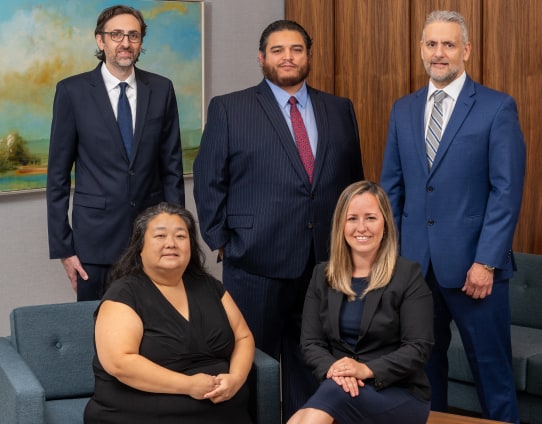Maryland Workplace Accidents: Does A Workers’ Comp Claim Preclude A Lawsuit?
Maryland Workplace Accidents: Does a Workers’ Comp Claim Preclude a Lawsuit?
According to a report issued by Baltimore’s WBAL TV NBC 11 News, a delivery driver died in a tragic work-related accident at an industrial site in Jessup, Maryland. In a statement, a spokesperson for the Howard County Police Department said the man was making a delivery to an awnings business around 8 a.m. on March 31, 2017.
As he was unloading his cargo, the weight shifted and several heavy aluminum poles fell on him. Officials received a call at 8:15 a.m., but it was too late: The man was pronounced dead when authorities arrived. There were no signs of foul play at the scene, so the incident was being treated as an industrial workplace accident.
Many employees are injured on the job every year, but work-related injuries due to an accident aren’t treated the same as cases involving negligence under state law. In general, a victim would file a claim with the Maryland Workers’ Compensation Commission in order to obtain compensation for their losses.
However, there are some exceptions to this rule, and in some cases, there may be an option to make a third-party negligence claim. If you’ve been injured at work, talk to a Maryland personal injury lawyer about your options.
General Rule: Workers’ Comp Often Precludes Separate Negligence Claim
Employers are required by law to carry workers’ compensation insurance to cover their employees in the event that an on-the-job accident causes injuries. An injured worker can usually file a claim with the Maryland Workers’ Compensation Commission (MWCC), outlining the details of the accident, the injuries they suffered, and the amount of time away from work to recover.
Generally, the Maryland Workers’ compensation laws are structured to provide injured workers speedy compensation for their time off of work, as well as cover their medical treatment costs, so they can return to health and get back to their job. Therefore, it’s not necessary to show fault on behalf of the employer.
Similarly, unlike Maryland negligence law, an employee’s own negligence will not operate to bar a claim for compensation under Maryland Workers’ Compensation laws.
Before these laws were enacted, many workers were forced to pursue a typical personal injury case based on negligence, and these cases could take months or even years to conclude. Upon MWCC approval of a workers’ comp claim, the injured victim can recover medical expenses and lost wages right away and may even be entitled to an award of compensation depending on the severity of their injuries.
State workers’ compensation laws often don’t allow a worker to file a separate lawsuit in a civil court where the negligent party is the employer.
In such a case, Workers’ Compensation is usually the exclusive remedy, and in such cases, if you choose to file a claim with the MWCC, you’re precluded from bringing a cause of action for damages against the employer. However, in some cases, there are certain exceptions that still provide a victim with options.
Exceptions for Certain Employer Actions
An injured employee may file a personal injury lawsuit based on the conduct of the employer in two scenarios:
- Failure to carry workers’ compensation insurance: If your employer hasn’t procured the proper workers’ comp coverage for employees, you can pursue a claim for your injuries directly and bypass the MWCC process.
- Intentional conduct: When your employer has willfully acted in such a way as to create a hazard and that dangerous condition causes the employee’s injuries, the law carves out an exception and does not immunize employers from negligence lawsuits.
Going-and-Coming Rule & Exceptions
Under Maryland law, an employee cannot file a workers’ compensation claim for injuries sustained while traveling to and from the job site or to and from work. The reasoning behind this “going-and-coming” rule is that employees aren’t actually performing their jobs and supporting the employer’s business while in transit.
Plus, if there is negligence involved with an accident that causes injuries, the victim’s remedy is filing a lawsuit against the responsible party. Thus, the general rule is that a loss is only compensable under Maryland Workers’ Compensation laws where the injury occurs in the course of the employment and in furtherance of activities that benefit the employer.
Still, there are exceptions to this rule that may allow you to claim workers’ compensation.
- Premises rule: If you’re on the property belonging to your employer when injured, you can still file for workers’ compensation benefits. The rule applies to any premises under the control of the employer, including the parking lot or common areas.
- Special errands rule: When an employer requests that a worker leave the workplace to perform a task, employees are eligible for workers’ comp if they suffer injuries during that errand.
- Special dangers: At times, an employee may face extreme risks or hazards that are part of the job. An example might be requiring you to work at a dangerous location or perform an unreasonably unsafe task. These circumstances may allow you to file with MWCC.
- Employer-provided transportation: In certain jobs, an employer may offer a ride to employees to transport them to and from a work site. The law considers this commute to be on-the-job, so sustaining an injury during this time is considered to be in the course of employment.
Third-Party Claims
In some cases, you may be able to file a personal injury lawsuit against a third party (i.e. someone other than your employer) if you suffer injuries while at work. A third-party claim typically arises in one of two situations:
- Car accident: You know from the going-and-coming rule that you cannot claim workers’ compensation if injured when traveling to and from work, but you can file a lawsuit against the at-fault driver. This type of third-party claim is based on the theory of negligence – or even recklessness under certain circumstances.
- Multiple parties at the work site: Some jobs, especially in construction, often involve employees from multiple companies present at the same time. If one of these individuals causes injuries, a victim can pursue a cause of action to recover compensation for their damages.
In summary, despite the general rule that you cannot recover compensation from your employer if you suffer an injury while at work, there are exceptions that apply in certain cases. Violations of law in procuring workers’ comp insurance or intentional conduct of your employer may allow you to bring a separate lawsuit.
Plus, the circumstances surrounding the workplace accident may provide legal options outside of filing a claim with the Maryland Workers’ Compensation Commission. However, the exceptions are limited to certain cases, and where there are complicated legal issues involved, you may need an experienced attorney to represent your interests.
For more information on making a workers’ compensation claim in Maryland, contact Justin Katz in the Baltimore office of Gordon Feinblatt. Justin is always happy to answer your questions or schedule a consultation to discuss your case in more detail.



